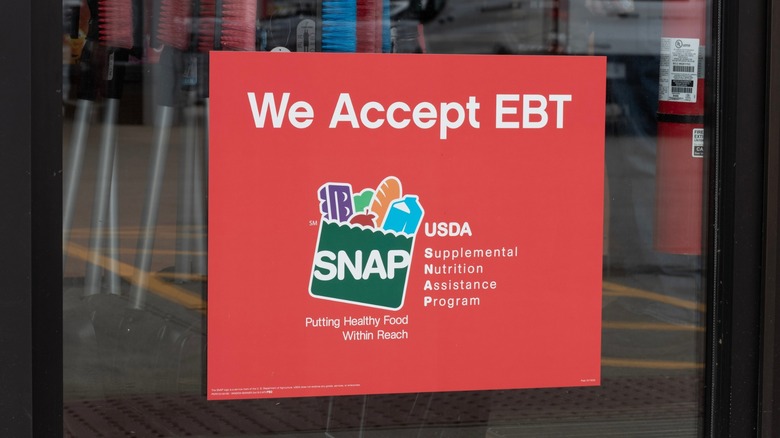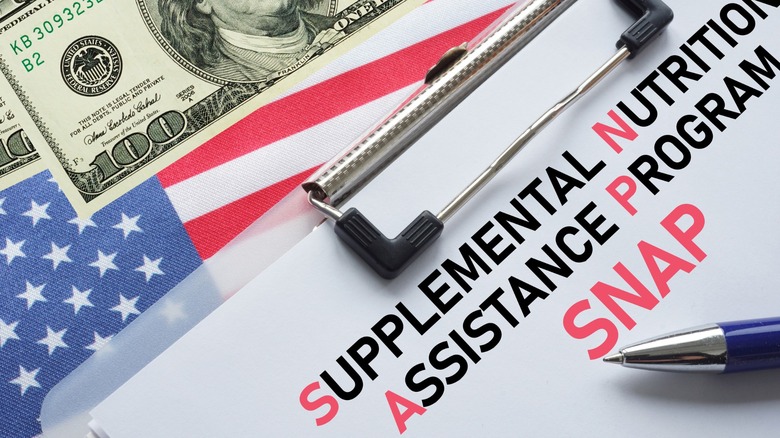What To Do If The Government Shutdown Has Delayed Your SNAP Benefits
Anyone who has read the news lately has likely noticed the headlines about the ongoing government shutdown. As of this writing, it is entering its fourth week, raising concerns about delayed benefits for those who depend on the Supplemental Nutrition Assistance Program (SNAP). More than 42 million people in the country rely on SNAP to purchase groceries ranging from healthy cereals to fresh and frozen vegetables. With no end to the shutdown in sight, many are scrambling to feed their families.
One solution folks can take advantage of is local community programs not funded by the federal government. Community meal programs and local food banks should still be operational which can help tide people over in the immediate future. However, many food banks are already struggling to meet the demands of their local populations. An influx of requests for assistance could mean they won't be able to provide for every individual that comes to them.
Typically, SNAP benefits don't expire until the year's end, meaning anyone who still has a balance should be able to use it if no new funds are issued this November. Planning low-cost meals using affordable ingredients like canned meat, vegetables, and beans will help stretch any funds people may have leftover from October. Scouring local stores for coupons can also be advantageous for those trying to make the most out of their benefits. Take a look at what you currently have on hand and don't let it go to waste by freezing what you can.
Delayed SNAP assistance may vary by state
One of the most important things people concerned about delayed benefits can do is find out the specifics regarding their state's SNAP schedule. While the federal government issues the funds for the program, individual states control who receives benefits and when they are distributed. Some states, including Arkansas, California, Hawaii, Indiana, Mississippi, and New Jersey have notified folks that, barring a resolution to the government shutdown, they will not be issuing any benefits in November. However, other states, like Colorado, are exploring solutions to provide at least some assistance to those dependent on SNAP.
Given that every state is different, it's worth checking your state schedule to see if SNAP is going to be reduced, delayed, or not coming at all. Whatever the case, it's better to be prepared. It may also be worth your time to contact your state representatives and let them know how the delay of SNAP benefits is affecting you and your family. If enough people voice their concerns, that could result in the powers that be working to end the government shutdown sooner rather than later.

